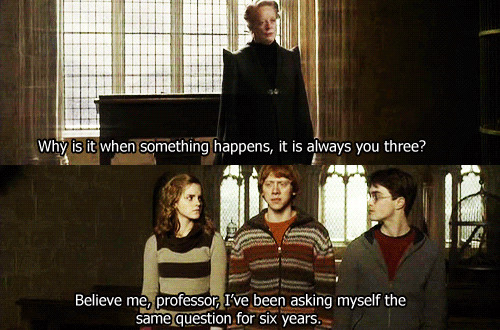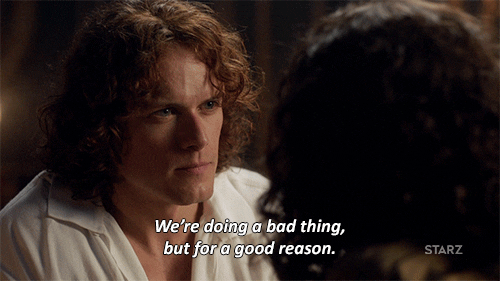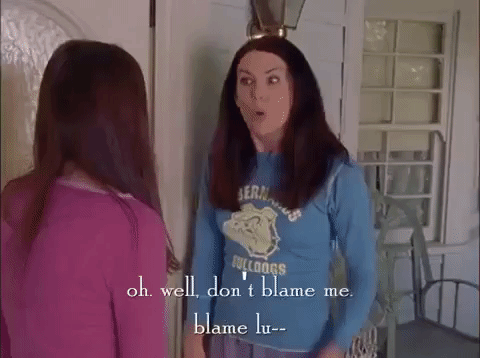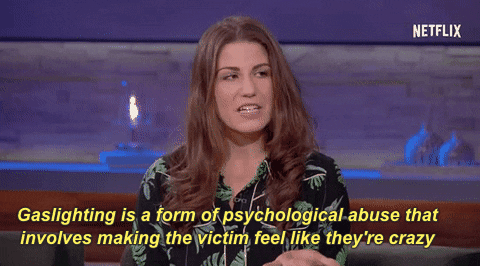|
BY MARYBETH GRONEK Enter: Seemingly perfect single person at a family gathering.
The scene goes something like this. You’re at a function. A relative (a usually caring and compassionate one, I might add) inquires about the State of Your Love Life. You clear your throat. You’re prepared. It’s only the 5,846th millionth time you’ve been asked this question. I’ve been dating a bit, but no one in particular that I’m excited about right now. The relative turns to you, bleary-eyed, with Mother-Theresa-imbued understanding and consideration, and says, “Just be yourself. When you meet the right person, it will work out.” I’ve never played soccer (or any contact sport for that matter). But this phrase impacts me the way I imagine a ball-to-the-groin hits the not-so-fortunate recipient: right where it hurts. I’m in a relationship right now, so I’ve been spared the “just be yourself” line for some time now. This distance has allowed me to analyze the phrase more logically and less emotionally, and to fully understand why it is so irksome, frustrating, and confusing. The problems with this phrase are threefold. #1 — It assumes I haven’t been “myself” up till this point. I can’t really begin to explain how insulting this is, but I’ll try. To evaluate someone’s dating life, from the outside looking in, and to conclude that the reason they are single is because they’ve been “shy” or “not themselves” during dates is the height of arrogance. If you could just stop being so love-struck or so anxious or so obsessed with what other people think you could finally find a mate you poor, unfortunate person! It implies that you think I have zero game, extreme nervousness, or massive insecurity issues (all of which may be true btw), but for you to assume that is happening and to rely on that as the “source” of my singleness says more about you than it does about me. People are complex. They are beautiful, wonderful mysteries wrapped inside intricate, magnificent enigmas. Buried in a treasure box. On a remote island. On another planet. Across the galaxy. It takes a massive amount of time to simply “skim the surface” of what makes a person tick. To understand why they act a specific way in certain situations. Ask married people. They’ll tell you it takes a lifetime to learn just one person, and even then there are mysteries to unravel. Each day a new discovery. You’re telling me you can take a quick glance at my circumstances and chart a simple course from You-Are-Acting-This-Way to You-Are-Single? B.S. #2 — It assumes the lack of being “myself” is the reason I’m single. Another huge assumption. Another miscalculation with broad strokes. There are *plenty* of reasons why people are single, many of which have nothing to do with “not being myself.” For those of you actively dating — maybe you’ve just met a lot of duds lately. Or maybe you met some incredibly interesting people, but their value-system didn’t quite align with yours, making it a poor match long-term. Or maybe the value-system aligned but the chemistry just wasn’t there. I hate to be the it’s not me, it’s you girl, but sometimes the shoe fits. Sometimes we go through bouts of dating people that just aren’t right for us. And it has nothing to do with “being myself.” For those of you not actively dating — maybe you’ve made a choice to stay single for a season to focus on your career, or your friendships, or other passions. Or maybe you’re just too damn busy loving your life to really care. Life is multi-faceted, and so is love. To assume that someone is single because they aren’t being themselves shows your naiveté — as if that is the only reason why things don’t work out. Or why people are single. Come, now. Nuance with me. #3 — It conveys that I shouldn’t change. When I hear “just be yourself” it also sounds a lot like “don’t change.” Which is TERRIBLE advice if you actually care about someone. The sweet mom who lovingly tells her boy he is perfect, that he doesn’t have to change a thing about himself, is doing him a grave disservice. What if he needs to change? What if I need to? There’s so much about dating that is mysterious, but this part is crystal clear: if you have unappealing habits that are repelling quality people, then you probably need to change. Some obvious eye-sores in dating:
What if it is you? What if you *need* to change to attract the partner of your dreams? In that case, saying “just be yourself” and implying someone doesn’t need to change is extremely bad advice, especially if they do want a partner. It will likely leave them lonely forever. Don’t misunderstand. This isn’t about “accepting” someone. We accept the people we care about. Duh. This is about calling out behaviors, patterns, and life choices that are so obviously limiting peoples’ chances at love. And, as the recipient, having the humility to course-correct. Yes, I may need to change. And that is absolutely okay! As you can see, this “just be yourself” phrase has its issues. The phrase would be problematic enough if it just stopped at Hey! It has multiple, conflicting meanings, so stop using it. But there’s more. There’s an undertone to this phrase that is actually quite true. Piercingly true. That’s the confusing — and effective — part. The *face-value* component is off-base. The undertone is spot on. What I think people intend to mean when they say ‘just be yourself’ isn’t don’t change rather, show up. Let me explain. Sometimes we hold back in relationships. We trade authenticity for attachment. We don’t show up fully for fear that those in our life will leave. When something someone does bothers us we don’t say anything (silence) or we lash out (anger), both of which mask our true emotion — sadness and pain. Or we hold back on what we really want to do or say because we don’t think the other person can “handle” us. Something I’ve been asking myself repeatedly in my current relationship: what does it look like for me to show up right now? It changes moment to moment. Sometimes showing up means dancing barefoot, unabashedly, to Frank Sinatra with my boyfriend because I feel like being romantic. Sometimes it means saying I’d rather stay in than go out because the sweatpants are calling my name! Sometimes it means telling him, with complete vulnerability, that he let me down instead of responding with anger or silence. Sometimes it’s being strong for him. Sometimes it’s letting him take care of me when I need it, letting him pick up the pieces of a bad day when I can’t do it on my own. Sometimes it’s catching his eye across the room and twirling, because I just feel like being a girl in that moment. Essentially — “showing up” is acting on and vocalizing my truest feelings and thoughts. No filter. No cover-up. No hiding. I think this is the essence of “just be yourself” advice in it’s purest, most helpful form. People rarely hear this undertone though, because they’re too repelled and distracted by the surface, nonsensical meanings. “Just be yourself” comes across as others suggesting I’m presenting a mask to the world (which, again, is insulting) or that I don’t need to change anything (which, again, is wrong). When rather, the real sword-piecing truth is Hey — you’re showing up at 75% of yourself. Can you stop hiding when you’re disappointed and communicate that please? Can you show up at 100%? I submit we have the funeral for this phrase. And say something much more useful instead. Show up. Continue showing up. I’m so proud of you. Very few times in life does the sentiment “it’s the effort that counts” actually hold its weight in veracity. This is one of those times. When it comes to dating, it is the trying that counts. It’s the putting oneself out there. It’s the showing up at 100%. It’s the trying, over and over again. Whether you’re single or in a relationship. Because it is precisely in the effort that you get the result. You can’t snap your fingers and be happily married. You can’t meet your dream partner if you don’t put in the effort of dating and show up completely in that space. So when we see a single person showing up, let it challenge & motivate us to do the same in our own love life (if we aren’t already). And let’s not offer them the ultra-confusing word salad of “just be yourself.” Their effort warrants much more. Instead let’s applaud them for saying ‘no’ to the wrong thing, even in the midst of what might be a lonely season. Let’s applaud them for trying to fix their life up before inviting someone to share it. Let’s applaud them for showing up. Over and over again. The way we show up over and over again for our partner. Our job. Our family and friends. Acknowledge and honor the effort. You are trying. And that’s awesome. It’s really that simple.
4 Comments
BY JENNY B Have you ever watched a child pretending to drive? I remember my friend Lindsay joking as we began our high school driver’s ed course that one of her earliest memories was her dad’s terror at her first driving experience. She was only a few years old when he let her sit on his lap and ‘help’ pull the car from the back to the front of the driveway while they were waiting for the rest of the family. Her first instinct at how to drive a car was to wildly swing the steering wheel, sharp left to sharp right. Even inching along at the rate of 0-5 miles per hour, she remembers her dad’s instant panic as the wheels of the car swung sharply toward the brick of their house and then the neighbors’, and bringing that idea for ‘a game’ quickly to an end. Yes, her family had a good laugh and reminded her of the last time she was ‘allowed to drive’, as we begin as 15-year-olds to really learn and take responsibility for operating a 1-ton machine on the open road. I’ve watched my daughter play in plastic, toddler-sized toy cars. Her instincts are the same, to wildly maneuver the steering wheel, even when she can see that it sharply changes the direction she is moving in. Try the experiment sitting while waiting in a parked, real car, and she will add in pushing every button and turning every knob on the dashboard. This is her idea of driving and being in control. While I support using every tool you have in your experience, she and I have different ideas about what it means to operate in control. Many adults with the benefit of a longer timeline of life experience and physical maturity of the brain will be smiling by now. Because we know that being a good driver does equate to applying your energy and attention to pushing buttons and turning the wheel just because you can. You see where I am going with this, right? As an adult in the broader context of life, this has caused me to reflect on being in control of not just my car, but my health, my life:
The last one, which turns the context to the more external, social, and goal-oriented is the adult perspective. My child’s experience is all about the joy of getting to play with the car. She is just playing and not trying to get anywhere or be ‘on time.’ How we operate in relation to others gets a lot of attention. Still, I would encourage you to not pass so quickly over the first 2 questions, and look inward for yourself. In driver’s ed, they taught us the ‘Rules of the Road’: How to Operate a Car Safely in Public. If you stop at that threshold in other areas of your life, it’s like taking pride in saying, “I am confident that I know how to chew and swallow my food when I go out to a nice meal at a restaurant, so I do not choke and need to be given the Heimlich maneuver.” Better to ask: Are you eating food you enjoy? Is it nourishing your body, relationships, and future? Those are the type of nuanced, next-level questions that can make the difference beyond just getting by at a basic level. We have been asking a lot of these questions in my household, lately, in an attempt to better ourselves and question some of the patterns we have adopted, especially as work and family life got busier in our 30s. Even in times of crisis, it’s bringing some joy back to our days to implement small changes like new and healthier foods, instead of the same go-to, easy dinner. Or, video calling with some of the extended family/friends circle, when, perhaps, we’ve been leaning heavily on our inner, obvious circle, for months, now. In reflecting on Father’s Day 2020 this past weekend, nothing is perfect. But, we are a little healthier and happier for opening ourselves up to our higher minds and aspirations. Special shout out to my husband who is a great dad and pictured in the photo with our daughter. He said the most swoon-worthy thing the morning I was writing this, which felt ‘out of nowhere’. But, as we know, so many experiences that come ‘out of nowhere’ have a long history of being shaped. He said, “I don’t know why we have a Father’s Day and a Mother’s Day. I believe in equality, and it’s not like we are providing uniquely different things for our daughter. It should just be Parents’ Day.” Swoon. And, that was the first time I was truly grateful for all the hard work and conversations we’ve had to have put in this year. It feels like we are finally getting beyond the basics and starting to enjoy driving. BY DIANE KERTH “Walking Squared” is a path to the life we want to be living.
The other day I went for a long walk outside. It was late in the day which was a mistake because it was hot! Very Hot! Sweaty hot! Where all you may think about is being hot. For a long time now, I have used my walks as a time to focus, recharge and get in tune with myself. Sometimes I listen to music and other times just listen to the sounds around me such as birds, the wind, or trees rustling. Walking is so much more than just burning calories. On this particular walk, my head was saying things like, “Gosh I’m out of shape. I’m so mad at myself. I shouldn’t have been eating so much. This is what I get for being lazy lately.“ It was all kinds of negative, beat myself up, words. Fortunately, I caught myself and thought, this is not helping me push through this hard walk. I know better than to get caught in a pattern of negative thinking. I need to find positive things to say to myself. I need to start thinking strong, uplifting, empowering words. I know it will make me feel better, so I need to change it! I kept walking, putting one foot in front of the other, step after step, till struggling with the heat but NOW thinking. “I am strong. I am kind. I am out here walking instead of sitting on the couch eating. I am moving instead of watching TV. I am getting healthier. I can do this. ” I started to feel better, repeating over and over positive words. I was getting more energized with each positive thought and the walk became more tolerable. The words I was FEEDING myself made a huge difference on completing the walk. I made it home with a smile on my face and proud of how I was now feeling. Feeding myself positive information is important to living my life, Walking Squared. It’s a term I live by, which reminds me of what I want in life and that it takes effort, intention and focus. You see, there is a blue square I drew with a pen, on a piece of white paper, hanging in my house. People ask me about it ALL the time. “Why is that paper, with the blue square on it, taped to your kitchen cabinet?” It’s because it reminds me that I DO know what I want. It’s a reminder to refocus, keep my goals, dreams and desired life in clear focus. I’m definitely not in control of all things in life but I do have control over some areas of my life. I control what I can control, and I let the rest go. The life I want is IN that square. How I feel about myself goes IN that square and so everything IN that square will be all things good! 😊 I am constantly on a quest to move forward in my life, step-by-step, towards all of the things that are in that blue square posted on my kitchen cabinet. It’s what I call Walking Squared, Moving Forward with Focus. The blue square on my kitchen cabinet is a clean blue square. Once you’ve done the work and know what you want in it, the blank square acts as an awesome reminder. The first thing to living this way is to figure out what we want our lives to be about? Who do we want to be? What’s important to us? Draw a square on a piece of paper. What words would you put in it? Happy, Encouraging, Loving, Healthy, Confident, are some of MY words. Then after it’s filled in with as many as you want, draw another square on a different page with how would you describe your life now? If the squares match with similar words, then excellent! But if you find yourself writing down words such as tired, stressed, worried, angry, drinking too much, eating too much, embarrassed of who I am, then there are definitely areas to improve upon, assuming that is NOT the life you want to be living. How we communicate makes a huge impact on who we are and the life we lead. I believe that we treat ourselves based on what we say to ourselves. Grab hold of the power we have available to each of us by saying positive empowering words to ourselves, as well as the positive things we can say to others. Words can lift people up or tear people down. Words are our thoughts; our thoughts drive our emotions. Our emotions drive our choices. All of this drives how our life unfolds. If we want what’s in our desired squares, we need to start speaking words that will guide us to our desired result. I strive to be Walking Squared every day. What’s in your square? BY MARYBETH GRONEK It’s the little foxes that spoil the garden. It’s the little stains that ruin the outfit. It’s the little shards of glass that, when stepped on, prove the trickiest and most painful to extract. Truth is, most dangerous people we meet aren’t serial killers. They are your average Joes (sorry to all the people named Joe out there) who *seem* okay for a while, then come at you with such cruelty that you’re like who the heck is this, and how did I not see this before? If we’re being real honest, though, there were things. Little things. Little things here and there that didn’t quite sit right. A weird look. A bizarre response to something someone else said. A visceral feeling to not disclose completely. Little subtleties that (should have) clued us in that something’s not quite right. That trouble is ahead. And then sh*t hits the fan and our subconscious is like Yep. Saw that coming a yardstick away. Because not every foe comes at us with a pitchfork. Because real danger is an iceberg; barely visible on the horizon, the true horror buried much deeper. Because we can’t see a wolf’s teeth until it growls. But we can notice the scowl. That’s what this article is about: identifying the *low-key* signs that someone is dangerous. Not murderous dangerous. Just the type that will steal your joy, throw shade your impact, & minimize your legacy. You know, the things that really matter. 1. They are tenacious about maintaining appearances. They are hyper-conscious of how they appear to others and actively work to control your perception of them. Whether it’s wanting to appear smart or strong or capable or ‘edgy,’ such people protect their image at all costs and view everything you say and do through the lens of does this threaten or uphold my image? This person will seem really normal and then fly off the handle all of a sudden to a seemingly innocent comment from a friendly source that was mistaken as a threat. For such an individual, nothing is ‘neutral’ — everything either supports or attacks the image of themselves they’ve constructed. It’s called narcissism in its extreme form (or megalomania when it’s most intense), but, honestly, most cases are less severe. And are perpetrated by people who, generally, care about others but don’t know how to go about maintaining relationship when they feel threatened. Which is often. 2. They have unresolved issues. You’ve heard the phrase: hurt people hurt people. When someone experiences pain and hasn’t sufficiently dealt with it or healed from it, you can bet they are dangerous. Much like the ‘appearances’ person, they seem normal until you unknowingly touch upon their unresolved issue. Unresolved issues manifest in different ways. It could be an overcritical, berating father whose son grows up to never be proud of himself or his work. So when you innocently remind him of something he has to do for you, he flies off the handle, not having resolved the issue of feeling inadequate. Or maybe the woman who was cheated on by a previous partner who can’t seem to trust any man— at work or in her love life — since. And when a male colleague or person she’s dating innocently omits key information she rails into him. Fearful, of course, that he’s being dishonest. Like the ‘appearances’ person, the ‘unresolved issues’ person reacts to every encounter through the lens of their pain. And thus, their behavior is erratic — normal in most circumstances, but completely irrational when intersecting with the unhealed wound. 3. They are a drama magnet. This is the person who seems to always be connected with relational drama. They cause repeated strife in the friend group, they’ve been ostracized from their family (by choice), they’ve “had to” cut out people from their life. Each of these in isolation may be justified and maybe isn’t so bad. The drama magnet, though, will have an ‘all of the above’ approach— a long history of stirring the relational pot. Boil down any controversy and you will find them at the center. Talk about a resume builder! Unlike Harry, Ron, and Hermione though, the drama magnet is not as self-aware and doesn’t realize that they are the epicenter of relational strife. I once had a friend like this. She would talk about people behind their back repeatedly. She cut herself off from her biological family. She caused drama at her church, to the point where she physically had to leave the state. She even ruined a budding romance of mine by poisoning the man’s opinion of me. Really gross stuff. Every place she traversed she left a path of destruction in her wake. Such people are dangerous because they are a ticking bomb: it’s only a matter of time before you are next. 4. They choose to air grievances publicly, not privately. Utilized by the insecure in physical venues and the cowardly in virtual spaces, public confrontation may seem like the *ultimate* power move. It’s celebrated in movies, TV shows, and other cultural benchmarks. The bowl in the china shop. The one who is “not afraid” to make waves. Real Housewives style. The truth is: they’re scared. Scared to share what is actually bothering them. Scared of being vulnerable. Scared of not getting what they want. Scared to be on the receiving end of your disappointment. And unable to bear its weight. So they put on a spectacle. Because then they only have to deal with your shock, not the substance of your concerns. A wise person once told me — praise publicly, critique privately. Why do we have so much trouble following this adage that we know, implicitly, is the honorable way? Because it’s easier to critique publicly. Private confrontation involves dialogue. A back and forth. Understanding, concessions, and oftentimes, meeting in the middle. And acknowledging that maybe I’m a bit in the wrong too. Critiquing privately involves introspection and personal growth. Essentially, it requires work from both parties .The painful, yet good kind of work. Dangerous people run from this at all costs. Their energy is spent elsewhere — preventing their ego from meeting their true self. Self-reflection cannot be permitted. So the environment that engenders such reflections (dialogue) must also be avoided. Dangerous people don’t talk through, they act out. You know what takes courage? Looking into someone’s eyes, one-on-one, and actually telling them how they missed the mark. If everyone out there actually did this, I believe we could heal our relationships. Heck, we could heal our land. 5. They have patterns of deception. And corresponding justification.There is no trait more universally bemoaned than deception. It is the scourge of every world that contains it and the downfall of every character that embraces it. Want proof? Look no further than our collective canon of literary examples. Satan was called “the great deceiver.” Judas Iscariot traded his friend for 30 silver pieces. From Othello’s Iago to Hamlet’s Claudius, Shakespeare villians share deception as their one linking ethos. Fast-forward a few hundred years. Scar deceived Mufasa. Peter Pettigrew deceived the Potters. Loki deceived all of Asgard (over and over again). The list is endless. When it comes to character constitution, there is no trait more corrupting and degrading. Or, as Marcellus puts it after seeing the ghost of Hamlet’s father, Something is rotten in the state of Denmark. Not every deception, though, is as deadly obvious as a Shakespeare play. And in 21st century life, it usually pairs with a hearty side of justification. I dated a guy a few years ago who was recently divorced. He treated me well and I thought he really treasured me. A few months in, I found out he had filed for divorce but it wasn’t actually finalized yet. He conveniently left out that detail. Of course he justified this oversight by his fear of losing me should I know the truth. Regardless of his reason, I couldn’t sugar-coat it — he intentionally deceived me. And then he tried to justify his deception. I started playing back our conversations and began seeing justifications everywhere, even for things I didn’t accuse him of. It made me doubt…pretty much everything. This deception-justification pattern is a common behavior of the dangerous. Why? Because like the drama magnet, it’s only a matter of time before you are the deceived party. And when that time comes, you won’t get a heartfelt apology. You’ll get a cold, hard, chilling, justification. No inkling of remorse, no desire to change on their part. To stay, at that juncture, would mean willingly agreeing to be duped in the future. And no self-respecting person can do that. To befriend a known deceiver is to agree to a fruitless relationship that is bound to end. Might as well start preparing the eulogy. 6. They refuse to take responsibility. “We’ve gotten to the point where everybody’s got a right and nobody’s got a responsibility.” Newton Minow, former FCC Chair A subtly dangerous person will refuse to take responsibility. For their own actions. For how those actions impacted you. For anything, for that matter. They are incorrigible — in the worst possible way. They cannot be prevailed upon to assume any sort of negative responsibility, perceived or otherwise. Any problem, should it exist in the world, is someone else’s fault. Do a quick scan of those in your relational web. Can you find someone who, to your recollection, has a habit of not taking responsibility for their actions? If so, stay far away. Chances are they are dangerous & you (luckily) have not had the occasion to find out. For the record, I think Lorelei Gilmore is delightful and not at all dangerous! ;) 7. They force you to doubt reality. Doubt is their name and gaslight is their game. This is when the person moves out of the *subtly* dangerous category and into the *overtly* dangerous category. They try to convince you something happened that didn’t. Or, more likely, they try to convince that you that something that did happen actually didn’t. Like their poor behavior (that you point out) or not fulfilling their word (which you call them on). Instead of making excuses or justification, which is insulting enough, they have the audacity to tell you you are not remembering things correctly. Sound familiar? Stephanie Sarkis, Ph.D. has done terrific work outlining other characteristics of gaslighters that really hits the mark. Gaslighting is a natural outgrowth of justification (#5) and not taking responsibility (#6). Instead of providing rationale or blaming someone else, the gaslighter just asserts ‘no you’re remembering it wrong, that’s not how it was.’ It involves a level of self-deception that is quite flabbergasting. And it violates trust between two people, which is the bedrock of a healthy relationship. If someone is trying to get you to doubt reality — RUN. I don’t think a dangerous person has to meet all of the above criteria. Heck, I don’t even think someone has to exhibit a natural progression of terrible behavior. Relationships aren’t that neat and tidy. Just one or two of these signs should raise alarm bells in your psyche. At the end of the day, it’s up to you to acknowledge these psychological “alarms” and determine what your next course of action is. Namely, if you will maintain or break rapport. Either way you win because you are now in control! The likelihood of getting caught off guard by dangerous behavior will be minimized. You are now equipped with the warning signs.
Why does this all matter? Because life is too short to spend it with toxic people. Maybe it’s just me, but ever since I hit my thirties my BS threshold has gone way up. I love my life and have no time or mental energy to waste on people who don’t deserve that investment. These signs help differentiate the healthy from seemingly-healthy. They prevent investing in someone who who won’t be in my life long-term. And they provide a sense of confidence and security that those in my inner circle can be trusted. Really trusted. So here’s to meaningful living. To enduring relationships. And to spotting the scowl before the growl. 😉 BY JENNY B “I did what I did, to save our friendship.”
“I met up with the guys last night and talked about if I should even tell you what happened…” “I don’t talk about what it’s like at work, because it would probably only scare or worry you.” These were the preamble to some of the worst conversations I’ve ever had. Regardless of the heavy content, the person delivering the news had attempted to script both sides of the conversation. In a gross overreach in preparing for a difficult conversation, it seemed as though each of these significant people in my life had over rehearsed the questions or lines of dialogue they imagined would follow. They had numbed themselves to being able to listen or remain curious about my actual reaction in the moment. In the worst case scenarios, they tried to explain how they had already taken action based on ‘how well they knew me’ and ‘what was best.’ Now, I don’t know about you. But, I would prefer to be approached as an equal partner in decisions affecting my life. Where that is not possible or ‘the ship has already sailed’, at least come to deliver the news, regarding me as a worthy adversary against adversity. I bring this up in sincere reflection about dialoguing with another person versus self-talk. In so many instances, our discussions with others, especially important relationships in our lives, feed into the content of our self-talk and vice versa. However, even at their most heated and intense, these are not the same. Even while sorting out your own rich and complex self-talk, you must remain curious about the other person. Even if you anticipate what you might be triggering in their self-talk and your shared history of the relationship, bottom line is: You don’t get to own both sides of the conversation. A graduate student on the path to become a professor or academic once told me he was taking an improv class, for fun. Picture ‘Whose Line is it anyway?’ or ‘Second City’. He said the best lesson was that even if you had thought of the perfect thing to say or do, you can’t get too hung up on it if other actors have jumped in and the moment to share it has passed. It comes across as you looking frozen and stilted while everyone else is acting and connecting ‘Live’. It doesn’t matter if what you had planned to say or do was brilliant, if it is out of synch when you say or do it. Many of us prepare for difficult conversations, out of respect for the other person(s) who will be involved. Sometimes, wrestling with our own questions or the fear of triggering strong emotion causes us to rehearse what might be said. Don’t let your preconceived notions and self-talk overtalk the worthiness of the person and moment in front of you. Do the ‘Live’ show. BY MARYBETH GRONEK So, it’s over.
It’s been over (perhaps) for a while. And you’re wondering am I actually over them? I’ve read a lot of advice on this topic — how to know whether you’re over your ex. Most of it recommends readers to look out for the following indicators:
The above advice misses the mark. In my own personal experience, I’ve found the five below indicators the most telling when answering the question am I over my ex? #1 — You Forgot They Existed. I’m a big Taylor Swift junkie. When her Lover album came out in 2019, the first track, I Forgot That You Existed was on repeat in my car. Not just because it’s a catchy tune (it is), but because it conveyed a state of mind I so desperately sought but hadn’t quite obtained. “I forgot that you Sent me a clear message Taught me some hard lessons I just forget what they were It’s all just a blur” To remember my ex briefly and say, wow I totally forgot about them. That was the state of mind I wanted to achieve. Interestingly, it’s not something that can be sped up or changed by sheer volition, though. It comes about gradually. When you’re still hung up on someone, you speak about them often and you think about them often. Or, as T. Swift says in her song: “Your name on my lips, tongue tied Free rent, livin’ in my mind” When your ex no longer lives “rent-free” in your mind, you know that you are over them. When you get to the point where weeks, even months pass before you think about them (and not because your mind “sought” them out, but because something in passing reminded you of them), you can rest assured you’re finally over them. #2 — The Thought of Intimacy (With Them) Is Repulsive. The desire of being with them is no longer present. It’s not interesting. Or alluring. It’s actually yucky. You don’t want to kiss them. Or sleep with them. You don’t want them having any part of your body. Not openly or secretly. Just, nope. Hard pass. #3— You’re Indifferent. The feelings of hatred, anger, or shame are no longer present. You genuinely want the best for your ex. “I forgot that you existed It isn’t love, it isn’t hate It’s just indifference” When you’re mad or want them to pay for what they’ve done, it reveals that you still care. Indifference is the emotion you’re after. Don’t misunderstand me — it’s not like you can ‘will’ yourself into indifference. And you can’t fake it either. True indifference is genuine. And it is a sure sign you are over your ex. #4 — Encountering Them Isn’t Anxiety-Producing. We all do this. We wonder what it would be like to serendipitously ‘bump into’ our ex. This fantasy occurs quite regularly in the early stages of a breakup. With it comes conflicting, deep-seated desires — the desire to show them you’re okay, or to show them how much they’ve hurt you, or, to prove to them that you’ve moved on (often accompanied by your new revenge body 😉). This fantasy, at its root, reveals a desire to communicate something in a space where communication has been severed. Whatever your message is though, the thought of actually encountering your ex brings anxiety. You want to convey the right ‘message’ and you’re unsure you will. Thus, the thought of ‘bumping into’ your ex does not satisfy or settle you, it leads to feelings of dread and trepidation. When you’re truly over someone, the thought of seeing them brings peace. You have nothing left to communicate. You have nothing left to ‘prove.’ Since there are zero expectations on the encounter, there is nothing to be anxious about. You are relaxed. This mental calm and security at the possibility of seeing your ex again is one of the strongest indicators that you have, indeed, moved on. #5 — You Don’t Recognize The Person You Were With Them. On a superficial level, new things are (and have been) happening in your life.
On a deeper level though, you’ve become a different person. You’ve changed and grown so much, that to think of who you were with your ex honestly makes you cringe. You laugh at the garbage the “old” you was willing to put up with. You rejoice at how far you’ve come. And you expectantly embrace the future, catching and treasuring all of it’s wonderful possibilities like fireflies on a warm summer night. There’s something more, though. Something about being ‘over’ someone that can’t be quantified. A visceral feeling, deep deep down. The truth? If you’re wondering if you’re over your ex, you probably aren’t. It’s something you just know. You either read this article bracing for the worst, knowing on some subconscious level that you’re still not over him/her; or embracing the best, joyfully celebrating what you knew all along. You’re free. And it feels good. Calming, good. Or as T. Swift would say: “And it was so nice So peaceful and quiet” ❤️❤️❤️❤️❤️ BY MARYBETH GRONEK People-pleasing behavior amounts, essentially, to behaving like a doormat. It’s never saying ‘no.’ It’s wanting to be liked more than wanting to be respected. It’s not having a spine. It’s bowing to others’ opinions at the expense of our dreams. Psychologists and therapists have done a great job identifying the signs of people-pleasing. That’s not what this article is about. This article is about how I’ve learned to acquire freedom from this destructive tendency. To do this, I’ve had to understand that people-pleasing is crippling, but not as destructive as the thing it is masking —namely, selfishness and fantasy-building. For most of my adult life I’ve struggled with people-pleasing. ‘Struggled’ is quite soft, actually. It’d be more apt to say that, up until a few years ago, I’ve been afflicted with it. Like a chronic disease, ever ravenous, daily eating away at my hopes, dreams, and potential. Self-sabotage party of one, please. And I’ve gone through various stages of trying to eradicate it from my life. If you are likewise afflicted, you might spot yourself in some of these commonly-used, yet failed tactics in the Abort People-Pleasing Campaign:
The problem is, from an objective standpoint, none of these tactics actually work. They don’t achieve their end goal: freedom from people-pleasing. The above strategies fail, as does the whole conversation regarding “people-pleasing,” because the focus is on the wrong object: other people. Of course we are losing the war — we have misidentified our enemy. We attempted to correct self while our gaze remained on others. This is a broken framework, doomed to fail, because people-pleasing is a symptom not a cause. As long as the strategy is to solve the symptom, recovery will be perpetually out of reach. Instead we must look to confront the root cause — ourselves. Here’s how I’ve learned how to do that in my life. Selfishness
The moment I identified these root causes of people-pleasing behavior inside myself was at a women’s conference a few years ago. It was during a Q&A session. One of the women stood up and shared her struggles of people-pleasing. At the end of her long, sad story, the speaker, seemingly unaffected by her plight, looked her straight in the face and said “How selfish are you.” All of the air in the room seemed to be vacuum-sucked towards the woman. She half-laughed, expecting he was kidding or this was some sort of trick. No one could respond so harshly to a woman so clearly in pain. She, reflexively, uttered an “Excuse me?” With the same seriousness as before, the speaker responded: “How selfish are you. Everyone has to like you? Do you realize how insane that is? How selfish and crazy do you have to be to insist that everyone likes you?” You could tell a lightbulb went on in the woman’s head. Rather, a whole Christmas tree turned on. You’re right, she said. It’s selfish and unrealistic to expect the whole world to like me. Instantly her spirits revived. Her face looked five years younger. She had been given the antidote she sought (in vain for) for so many years. And the treatment was already working. A lot of women were healed in that room that day. And it was my first glimpse into an understanding of how to actually get rid of people-pleasing. People-pleasing is a symptom not a cause. Effective, lasting treatment must target the cause. For this woman, and many others, the cause was selfishness. This was the beginning, not the end, of my journey. I came to understand that treating selfishness helps for dealing with people-pleasing in the most general interactions — acquaintances, trolls on the internet, colleagues, & moderately close friendships. It doesn’t, however, work for close, intimate relationships. Because in that situation, you’re not expecting everyone to like you; you’re expecting the one or two people closest to you to care, which is realistic and not at all selfish. Fantasy-Building I started expanding my analysis to look for other causes that could explain why we are hesitant to speak our mind to those closest in our lives. Especially when the relationship is of a romantic nature. For a while I thought it was due to past-trauma or poor habits of interacting. But I had to be honest with myself and admit that that was a cop-out. I had grown light-years from those earlier experiences, to the point where I no longer relied on them. For anything, really. No, something else was going on altogether. Sitting with the discomfort of not knowing what that was was more palatable than believing a lie and blaming my past. I had come too far for that. I committed to prospecting the answer. And then I struck gold. I was in a situation that elucidated a clear picture of what was actually happening. My boyfriend and I had a short season of disagreement about something. We weren’t necessarily fighting (my boyfriend doesn’t get angry — he’s the most even-keeled person I know. It is baffling and also quite wonderful). Rather, we weren’t seeing eye to eye on something. This is natural in relationships. But for me, it was becoming increasingly clear that our point of disagreement was a line-in-the-sand type situation. And I was struggling with the newfound revelation that this was becoming a deal-breaker for me. I didn’t want it to be, but it was. And I had to honor that. Whenever something came up regarding this issue, I fought myself in terms of speaking my mind 100%. There was a fear that if I did, if I made it clear what I wanted and needed, I could lose him. People-pleasing is a manifestation of make-believe, it is building a fantasy of others in our own mind. We fantasize that someone will support us, will meet our needs, and will be the type that truly values and cares for us. And when we start getting close to people, rather than asking the hard questions, saying the hard things, and disabusing ourselves of the fantasy we’ve created, we sit in silence. Because we know, on some level, that manifesting our truest thoughts and emotions might unveil that we don’t have a partner, we have a fantasy that we’ve been building. That we aren’t actually treasured by someone. That we aren’t respected. That they wouldn’t actually sacrifice for us. And with that realization, we understand that if we have any shred of disrespect, we have to leave. While this sounds sad, in the long run, it’s encouraging. We aren’t losing someone incredible, we’re losing the *myth* that they were incredible. That stings way less. Once I realized this, I confronted my fear that I might have constructed a fantasy. I started saying the hard things and speaking my mind completely. Not only because it is the right thing to do, but to see if he actually was the wonderful man I believed him to be, the type of man that could weather the full force of who I am. Lucky for me, he was (and still is!). My boyfriend is incredible and cares about me a great deal. I know this is reality and not a fantasy because I did the hard work of ‘going there,’ of speaking my mind completely and seeing how he reacted. Our relationship is stronger now than before this season, because it’s been battle-tested. I feel more secure in it too. I can’t unsee this lesson. Everywhere I go I spot fantasy-building. People staying in jobs that treat them poorly. People dating someone who clearly doesn’t care about them. People holding on to friendships that don’t serve them. People giving and giving to others who don’t care jack sh*t about them. At its root, it’s fantasy-building. It’s believing something that isn’t true. Because we know, deep down, if we took that step to advocate for better pay, or better treatment, there’s the potential we realize we aren’t valued the way we thought we were. And the natural next step is to leave. And we’d rather not do that. So, instead, we fantasy-build. Instead of asking ourselves why is it so hard for me to say this? we should be asking ourselves what fantasy am I protecting? Because that’s what people-pleasing is: self-protection. It’s a lifestyle of preventing the moment where we have to flip the coin to see if other people really care. So instead, we don’t even start the game. People-pleasing is a deception. It’s the deception we’ve always wanted, because it concentrates our gaze on the opinion of others, rather than on the real work of showing the heck up to life and seeing who stays. BY DIANE KERTH What is she talking about! How can we even think about joy at a time like this in our world? People are getting sick, people are dying, businesses are struggling. It’s scary, it’s sad, so how could we even think about joy? Often, these are the times we NEED to find or create joy.
I had to turn off the TV. I wanted to be informed but it was all getting to me. The news conferences about Covid 19, the reports, the updates. I was feeling sick from the stress of it all, huddled under a blanket and doing nothing but worrying. I needed to snap out of the dark place I was sinking into. I purposely began doing a lot of positive self-talk such as, ”I’m ok. I’m healthy. No fever, I’ve sanitized everything. I’ve prayed. I’ve done all that I can, so relax Diane, breathe and do your best to move forward”. I knew I needed to switch gears and pivot. Companies that go through disasters know they need to pivot, adjust and adapt to survive and come out the other side. This is what I needed to do for myself. I needed to take ACTION. To do something. So DO what? Well, since I am working from home every day and sheltering in place what can I do? I stood looking out my kitchen window at an extremely quiet empty neighborhood street. As I stood there, looking, pondering the thought of what can I do? Out of nowhere it dawned on me! These windows are filthy, I need to wash these windows!!! I’m not joking at all this is where my joy began. I grabbed a roll of paper towels and found glass cleaner then started to take apart my window. I have very old windows which means several are put together to make one kitchen window. There are inside windows on a track, outside windows, and a window that covers a screen. One by one I took each window out of its track and thoroughly cleaned them on each side. I was feeling great and productive. After doing the best I could, I carefully reinstalled each window. When they were all back in place, I stood there and looked out on the same desolate street through the now very clean window, amazing! I was feeling delighted and proud. Ugh, and then I noticed I missed a couple of spots. Normally that would be very frustrating to me but not TODAY. 😊 Today I was feeling a simple gleam of joy. Yes, to me it was joy. Not a loud, jump up and down joy but a quiet satisfaction. I accomplished something and made progress. I took action and was back in control of something. Joy can show up in many different ways. During challenging uncertain times, taking action will help us. Being productive and making progress will add a sense of control to your life. Finding ways to grab on when life feels out of control, uncertain, and scary may come down to cleaning windows, organizing a closet, or finishing a project that was started. Maybe for you it’s making sure the kitchen sink is empty of dishes before you go to sleep or making your bed in the morning or putting away the CLEAN laundry that has been sitting in baskets for over a week. Do something, take action, take control. Feel the joy that comes because of completing it. Joy can be created in everyday accomplishments! BY JENNY B Three years ago, I co-opted the family Easter egg hunt to announce my husband and I were becoming parents. The aunties and uncles and grandparents-to-be received an egg with an ultrasound photo, while my nieces and nephews were cracking open eggs full of chocolate and jellybeans. As a person who did not get the natural ‘crafting’ gene that my sewing-machine-owning mother and sister have, this was a victory in planning and execution.
The year after that, we took a photo of our daughter in a blue oversized armchair wearing what is still my favorite fancy dress of all time. And, this time last year, a late walker but ambitious scooter, she was finding her own way around in pursuit of Easter eggs, tolerating even the touch of grass, sequins glinting off her pink-on-pink dress into the sun. The 2020 Easter egg hunt scene is different than any of us expected, to say the least. The community Easter egg hunt in the local park will not take place this year. And, honestly, we’ve been letting her find and open plastic Easter eggs with a variety of treats in them for weeks, as we try to entertain her, gather some momentum for potty training, and balance work and home responsibilities during the Stay At Home order in our state. There are many unknowns in these anxious and uncertain times. It reminds me of my journey into motherhood through high-risk pregnancy. I wanted to be a mom for years before I was. There was a lot of waiting and watching, hoping to correctly read the signals and clear the next milestone. I kept thinking, “I’ll be happy when we’ve reached 12 weeks…20 weeks…27 weeks pregnant…” for the corresponding medical guidance and likelihood of a healthy outcome for baby and me. There was always another goalpost: bringing her home from the hospital, 5-days post-birth, all the regularly-scheduled pediatrician visits in the first year.... My in-laws have a saying to reflect the anxiety and restlessness of early parenthood, “Many nights, I walked the floorboards with you.” On the bookshelf near my daughter’s crib, there is a framed photo of that first ultrasound. In a photo frame etched with “Love at First Sight,” she seems such a tiny but triumphant baby with her arms raised. It was my anchoring image on many late and sleepless nights, to remind me what a miracle having my healthy and strong daughter is. My daughter has pointed to it and asked about it. In her toddler voice she calls it, “Little Baby,” because I told her it was her when she was a little baby. There were a lot of reasons or moments we could have lost hope and given up along the way to becoming parents. The first photo I see on my bookcase, most mornings, is her as a newborn baby, smiling at her first morning’s light. Throwing around the term ‘miracle’ can sound cliché or not applicable for those who aren’t religious. So, I’ll say that it’s a daily reminder that perseverance, listening to medical guidance, and leaning into the support of your family and community yield great outcomes. Be well and take notice of what anchors you and has moved you through past challenges that might otherwise have been overwhelming. This isn’t just for parents and those wishing to be parents – this is love in the time of COVID-19. BY MARYBETH GRONEK Volatility does a number on the human soul. It makes us lean on protective mechanisms, revert to old and unhelpful patterns, and embrace suspicion and desperation where we tread. At best, it makes us shrink back. At worst, it brings out the ugliest parts of us. It’s at this point, in the middle of a crisis, where we need leadership. We need it more than ever. A leader can be the head of a household, the head of a classroom, the head of company, and yes, the head of a country. There are no minor leagues here. If you have people looking up to you for direction, you are a leader. And you owe it those under your authority to wield the power well. The good thing is, what it takes to be a leader in bad times is the same as it is in good times. It’s just that the stakes are much higher. And the gap between effective and ineffective leaders is more obvious. So what does it take to lead with excellence? It’s the 3 I’s of Leadership. The 3 I’s Of Leadership are intelligence, instinct, and inspiration. Let’s unpack what each one of these mean & observe how they operate in action. Intelligence Intelligence relates to the past. It is the ability to acquire knowledge and skills. This can be personal acquisition, or, surrounding yourself with knowledgeable ‘others’ who can help you make informed decisions. Psychologists have broken down intelligence into two categories:
Strong leaders have both crystallized and fluid intelligence in spades. We have all had leaders who possessed one without the other and observed the negative ramifications. For example, a person who has more degrees than Fahrenheit, but can’t seem to figure out that a direct report is so-obviously-duping them. Not a good leader. Or the person who operates from common sense but lacks the polish or communication skills to garner the respect of others. Also a poor leader. Both crystallized and fluid intelligence are needed to lead with excellence. Instinct Instinct relates to the present. It is your gut reaction or *intuition* that guides you. People make decisions based off of 1) what is concretely available through the 5 senses OR 2) off of their intuition. Sometimes, it’s a bit of both. Those familiar with the Myers Briggs personality test understand this as the sensing vs. intuition (or S vs. N) dichotomy. Only 25% of the population are intuitives. Meaning they perceive indirectly by way of the unconscious and let their instinct guide their decision-making process. They are more concerned with possibilities than actualities. To sensors, this sounds terrifying. Why would someone let anything but objective reality guide their choices and actions? I’ll tell you why. Because in most situations, it’s the best and most reliable option. It just so happens, that our intuition is more trustworthy than we realize: it’s comprised of primordial knowledge, millions of years of interpersonal dynamics, compiled over generations and generations. Instinctual knowledge is hard-wired into our brains and is as healthy for us as their air we breathe. Over time, we have come to suppress our instincts in favor of the ever-trusted, socially-lauded “objective reality,” that is, that which can be perceived through the five senses. Don’t get me wrong, objective reality is important, but it isn’t everything. Martin Lindstrom, CEO, renowned author, and leadership authority posits that instinct is the most important leadership skill, and provides example after (CEO) example to prove his point. Why are we so hesitant to embrace this? Or rather, how do we come to suppress it? What kills a person’s ability to lead with instinct:
Yes, instinct is mysterious. Yes, it is unpredictable. But a leader needs it. An excellent leader is not only in-tune with their unconscious, but is also comfortable and adept leading from it. Inspiration Inspiration relates to the future. It is the ability to influence, move, or guide others into the unknown. It is being visional and missional. It is having goals and letting the mission drive you. Inspiration is like a cold — first you have to catch it to pass it on to others. You can’t lead others well if you fail to effectively paint a hopeful vision of the future, and if you don’t, at your core, believe it yourself. An inspirational leader:
Every notable leader though out human history — Martin Luther King, Mahatma Gandhi, Theodore Roosevelt— all had this. The ability to inspire people. The ability to live a life of integrity. The ability to rally others around a common culture and vision for the future. I was recently on a Virtual Happy Hour call (those are becoming more frequent in these times) with friends from across the globe. While we are in different time zones, and possess different worldviews, we converge on this point — a collectively shared experience of crisis. Every country, company, and individual is dealing with the same hidden enemy: COVID-19. We were talking about how the respective leaders in our sphere were dealing with it. My friend Fred, who lives in Canada, mentioned a public figure in local government who was experiencing a surge in popularity in the wake of this crisis. “He was called out in press conference by a journalist saying that two weeks ago he said something that his actions now are contradicting. This leader responded Yes, I said that. Things have changed. We are in a different moment now. And we have to change course.” Bingo. No one wants a stubborn leader. Someone who sticks to their old decision even when new information proves it is not the best path. That’s a poor leader, someone who is leading from ego not from instinct or intelligence. Also, we don’t want a leader who refuses to own their past actions. Who pretends they didn’t say what they said or do what they did. That is also a poor leader, someone who is leading from self-protection, not inspiration. This leader did both things — owned his past decisions & statements, but also the responsibility to change course with new information. He embodied intelligence, instinct, and inspiration in that one moment. Which is why his people respect him. And his popularity is soaring amidst the crisis. The CEO of my day job did something similar. A few weeks back, right when everyone started working remotely, he sent out a company-wide email saying that based on the criticality of services we provide to the public, we would need to continue reporting in-person to the office. I remember feeling a bit disappointed about it. But I trusted that he had all the information he needed to make the right decision in the best interest of our customers, communities and associates. It took a lot of guts sending that when other CEOs were sending similar emails with a different directive. Two days later, he sent out another email to the following effect: ‘Due to the rapidly changing circumstances we are facing in this challenging climate, we are moving toward a remote working approach.’ In just 48 hours he changed course. That second email took more guts than the first. This is what effective leaders do: they use up-to-date intelligence, instinctual knowledge, and inspiration to make critical decisions. They pivot irrespective of ego, in alignment with the 3 I’s. Leaders who abandon any or all of them steer their ship off-course. And lose the respect of their people in the process. An important note re: CEOs and world leaders. Understand that they have the weight of their companies and counties on their shoulder. Quite literally. I appeal to your humanity for a moment. Imagine having such pressure, and having to make decisions with those considerations. Another one of my friends that was on the aforementioned call is a small business owner. He had to lay off 5 people this week. It was the first time he had to lay someone off in 40 years. It broke his heart. But it was the tough decision he had to make to keep his business afloat. He grieved with us on the call. And we held space for him to mourn what had to be done. So have some grace for the leaders in your life. Even the ones you don’t particularly like. They are people too. They are doing the best they can with the information in front of them. They bear the immense responsibility of best stewarding that which was entrusted to them. Let’s do our part to respect their decisions, even the ones we don’t necessarily agree with. I started this article with what it takes to be a good leader. I ended it with a discussion on what it means to be under authority, and how to do that well too. This wasn’t an accident. They are two sides to the same coin. The brutal truth: we need to understand how to be under authority just as much as we need to understand how to lead. Because everyone has both in their life. The more I am called to lead others in my life and bear that responsibility, the more I hold sacred my ability to be easily led by those in authority over me.
Because I understand the weight of leadership. And I understand the unspoken rule between leaders and followers. As a leader I know personally there is always more to the story, always more than I am at liberty to share. As long as I lead from the 3 I’s though, I will have the respect of my people. And there is an implicit, unspoken agreement between leaders and followers, that as long as leaders abide by the 3 I’s, followers are okay with not knowing everything. They trust their leader is making decisions in the best interest of their team/constituents. So for those you lead — hold fast to the 3 I’s. Make decisions in-line with intelligence, instinct, and inspiration. You’ll rarely stray from the path. And when you do, your people won’t bludgeon you. And for those under authority— be easy to lead. We see in part, they see in full. And they are making decisions accordingly. And for the leaders you have lost respect for? Don’t offer them ire or contempt. Any impassioned response from you gives precious energy they haven’t earned. Offer them grace. That is all an honest person, in-tune with their own leadership shortcomings and their own ugliest moments, can give. A little humility goes a long way. |
Previous PostsArchives by Month
December 2020
Categories |
Site powered by Weebly. Managed by Namecheap














 RSS Feed
RSS Feed